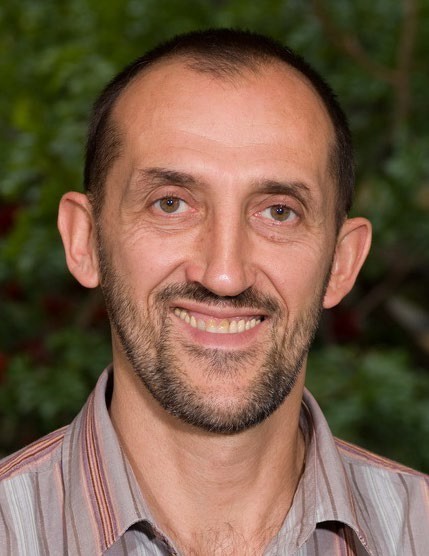GVN Center and Member Spotlight

Dr. Alexander Khromykh
Associate Professor, Deputy Director (Virology), Australian Infectious Diseases Research Centre,
School of Chemistry and Molecular Biosciences
University of Queensland
Brisbane, QLD, Australia
What are you and your institution currently working on regarding COVID-19?
The Australian Infectious Disease Research Centre (AIDRC) and the University of Queensland (UQ) have a wide range of currently ongoing COVID-19 projects including development of vaccines, diagnostics, antivirals, disinfectants and host-directed therapies. I established the work with SARS-CoV-2 in Biosafety Level 3 facilities at UQ and collaborate closely with other researchers and industry partners in evaluating vaccine candidates, antiviral drugs and disinfectants by using a range of viral assays. We are also investigating the innate immune response to SARS-CoV-2 and how this leads to cytokine storm in severe COVID-19, as well as the immune response to SARS-CoV-2 in vulnerable patient groups. As some of the outcomes of these collaborations, UQ’s COVID-19 vaccine based on stabilized form of Spike protein has entered Phase 1 clinical trials, an antiviral drug Pixatimod has shown promise as a potent inhibitor of SARS-CoV-2, and a novel highly potent SASR-CoV-2 disinfectant has been identified.
Please describe your research.
The primary focus of my group in COVID-19 research is in elucidating molecular mechanisms of virus replication and pathogenesis by developing and utilizing cutting edge molecular technologies, such as reverse genetic systems, deep mutational scanning, and in vivo RNAi screening. We have recently developed a novel reverse genetic system for SARS-CoV-2 that allows rapid manipulations of viral genome and are currently utilizing this reverse genetic system to map determinants of viral pathogenesis and evasion of host response.
Biosketch
Assoc. Prof. Khromykh completed his PhD in Molecular Virology at the State Centre for Virology and Biotechnology "Vector” in Russia and postdoctoral training at the University of Ottawa in Canada. He then joined Sir Albert Sakzewski Virus Research Centre in Brisbane Australia and established his laboratory there in 2001. He then moved his laboratory to the University of Queensland to take up an appointment with the School of Chemistry and Molecular Biosciences. He was the recipient of prestigious Senior Research Fellowship from the National Health and Medical Research Council of Australia from 2004 to 2019 and the past Senior Member of the Australasian Virology Society Executive Committee. He is currently the Deputy Director (Virology) of the Australian Infectious Diseases Research Centre, Co-Director of GVN Centre of Excellence, and a member of the GVN SARS-CoV-2 task force. His research into RNA viruses encompasses a number of overarching themes, including molecular mechanisms of virus replications, virus-host interactions, viral pathogenesis, development of novel vaccine and diagnostic platforms and antivirals. His group develops and utilizes cutting-edge molecular technologies to discover viral and host determinants of pathogenesis for RNA viruses such as West Nile and Zika viruses with the recent expansion of research interests into SARS-CoV-2 virus.
Overview of the Australian Infectious Diseases Research Centre, University of Queensland
The Australian Infectious Disease Research Centre (AIDRC) is a multidisciplinary Research Centre linking research groups with expertise in virology, bacteriology, parasitology and clinical research at the University of Queensland (UQ) and QIMR Berghofer Medical Research Institute (QIMRB). The AIDRC’s mission is to utilize leading technologies to identify, understand and prevent infectious diseases. The primary strength of the Virology discipline at the AIDRC is in arbovirology, primarily flaviviruses and alphaviruses. AIDRC also has internationally recognized expertise in HPV, HIV, Influenza, MERS, Ebola, RSV and is currently rapidly gaining expertise in SARS-CoV-2.
